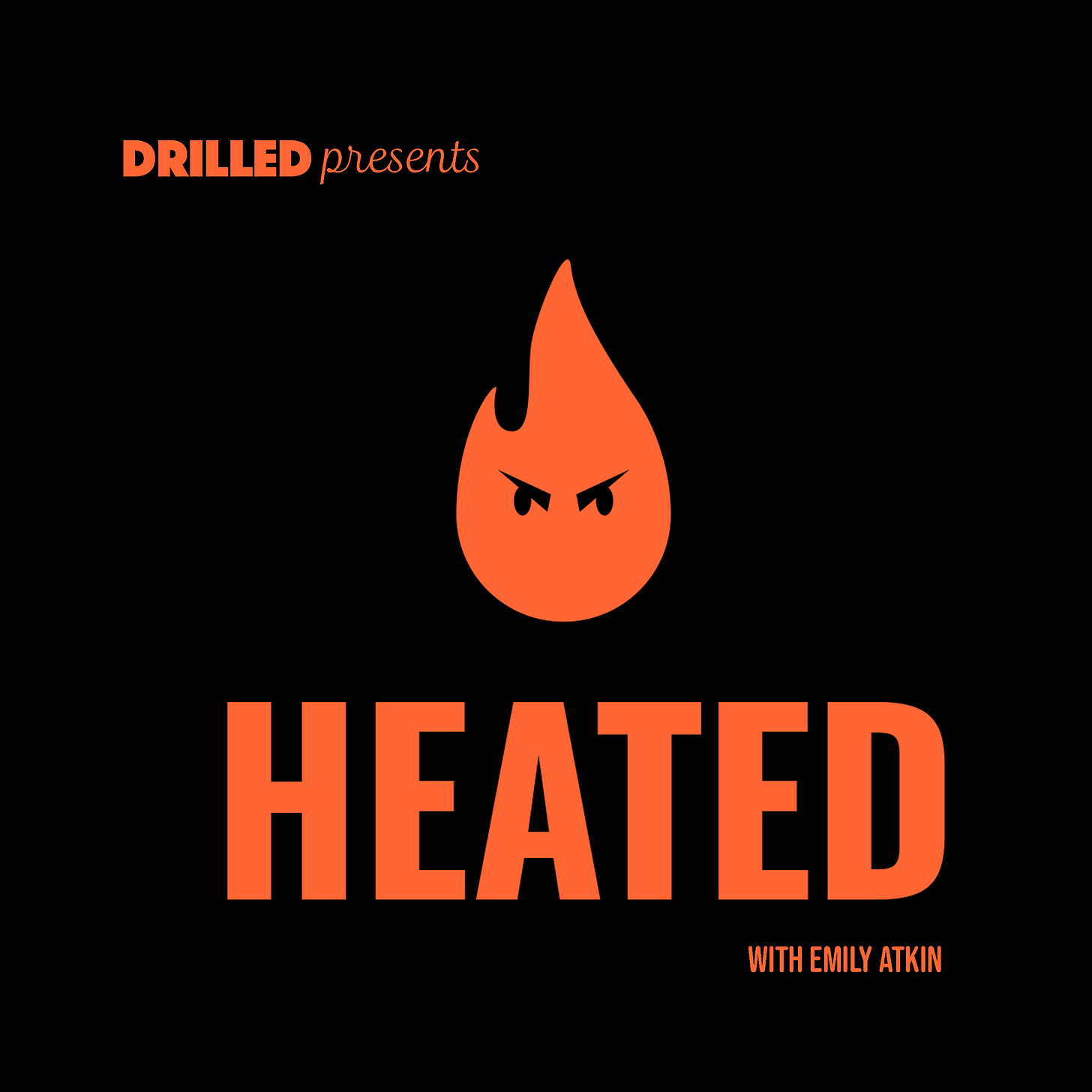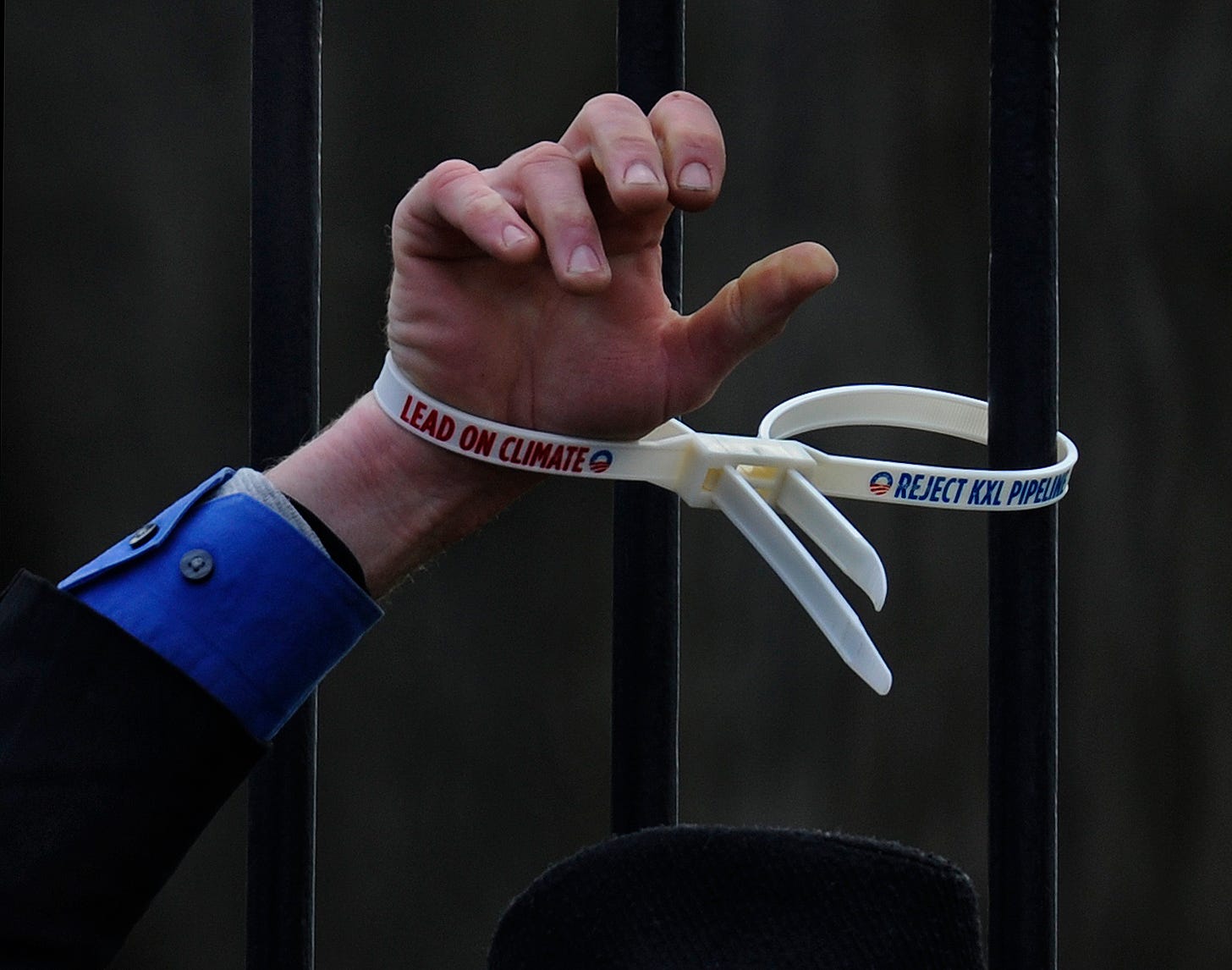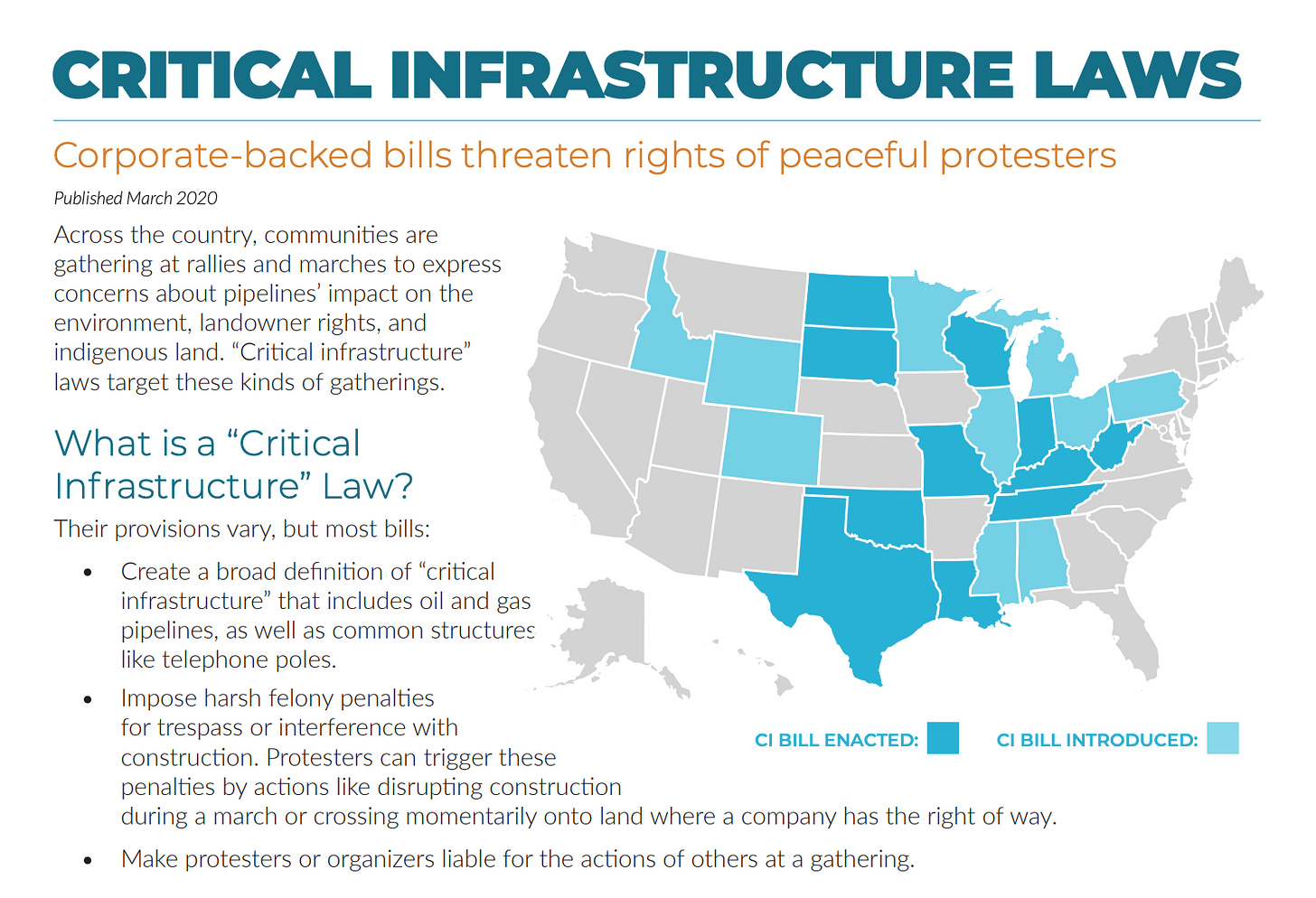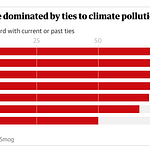What’s uh… what’s goin’ on everyone? Everything cool over there?
Are you perhaps perpetually vacillating between bouts of intense activity and lethargy, each dictated by your ever-shifting outlook on humanity’s future? Are you perhaps opening your refrigerator every hour, only to stare blankly at your dwindling fizzy water supply before shutting the door empty-handed, because deciding what to eat requires too much emotional energy?
Oh yeah, me either. Not me at all. Tiger King though, am I right? Those music videos, man. They’re great. (Kinda weird how everyone is ignoring the whole abused tigers thing, though).
Anyway, you may have noticed there’s an audio file on top of today’s newsletter. Weird, right? That’s never happened before!
Well, get used to it. Because starting this week, HEATED will begin releasing a 6-episode podcast, showing that COVID-19 and the climate crisis cannot be separated. In a series of up-to-the-minute interviews, we’ll connect the dots on how two of the most pressing issues of our time are really one and the same. The podcast will be co-executive produced by myself and Mikel Ellcessor, the co-creator of RadioLab.
If you’re a subscriber to the newsletter, the episodes will come directly to your inbox as soon as they’re released, in audio files like the one at the top of today’s issue. There will also be options to listen on your podcast app of choice, thanks to our awesome partners at Drilled News, who are letting us drop into their podcast feed. I’ll also send out interview transcripts for those of you who prefer to read rather than listen. In the meantime, though, go make sure you’re subscribed to Drilled, so you don’t miss an episode.

The audio file at the top of today’s newsletter is just a little teaser. A “trailer,” if you will. (I don’t know anything about podcasts). Mostly, it exists to announce our first guest: author and environmentalist Bill McKibben. That’s right y’all—we’re featuring HEATED’s fiercest climate newsletter competitor on the first episode of the podcast. Will there be an on-air brawl? Who knows! You’ll only find out if you listen.
The first episode of the HEATED podcast is scheduled to be released this Wednesday, April 1. As a reminder, while we’re putting the podcast together, the newsletter is on a limited publishing schedule. Full articles will be released on Mondays and Thursdays only.
My hope is that this series will meet the urgency of the moment without delving into hysterics; that it will be educational and cathartic without being anxiety-inducing. I have already learned a ton from recording the first episode. I can’t wait to hear what you think.
Alright. Enough good news.

What’s better than a bailout? Silencing climate activists.

(Photo credit: Erik McGregor/LightRocket via Getty Images)
Even in the midst of an earth-shattering pandemic, things haven’t been all bad for Big Oil.
Sure, oil prices are currently the lowest they’ve been in decades. But the renewable energy industry is taking an even bigger hit, with analysts predicting a “decimated” outlook for the next two years. That’s simply not the case for fossil fuels.
Unlike renewables, fossil fuels are expected to benefit slightly from the $2 trillion economic relief package Congress passed last week. As Emily Holden reported in the Guardian, the COVID-19 relief legislation “will dole out billions to struggling airlines and offer low-interest loans that fossil fuel companies could compete for—without requiring any action to stem the climate crisis.”
And though Democrats bragged that they “eliminated a $3 billion bailout for Big Oil” from getting passed, Earther reports there’s still a $4.5 trillion corporate bailout mechanism in the bill that would allow Treasury Secretary Steve Mnuchin to grant large payouts to the fossil fuel industry. A bailout, in other words, is still on the table.
Pair all of that with the plastics industry’s recent success in halting state bans on single-use plastic bags—which are, of course, made out of petroleum—and it’s not hard to see how the fossil fuel industry could come out of the COVID-19 pandemic with a few decent wins.
The biggest win the fossil fuel industry could receive during the coronavirus crisis, however, would not be the temporary decimation of the renewable industry; or the resurgence of single-use plastic bags; or even a large corporate bailout.
Indeed, the biggest win the fossil fuel industry could achieve would be the ability to silence their most effective political opponents—climate activists—by threatening them with hefty financial penalties, felonies, and prison time for protesting their operations.
Believe it or not, the COVID-19 crisis is providing Big Oil with an opportunity to do just that.
Criminalizing climate protests during a pandemic
Since COVID-19 was declared a pandemic on March 11, three states have passed anti-protest laws specifically aimed at preventing climate activists from practicing civil disobedience.
Known as “critical infrastructure bills,” these laws impose harsh criminal penalties and steep fines on activists who attempt to physically block the construction of oil and gas pipelines or other so-called “critical” fossil fuel infrastructure. Such acts have become increasingly popular—and effective—since the Standing Rock Sioux protests against the Dakota Access pipeline captured the world’s attention in 2016.
HuffPost’s Alexander Kaufman has the scoop:
First came Kentucky. On March 16, Gov. Andy Beshear (D) signed legislation that ― while removing some of the original bill’s more extreme proposals ― designated “natural gas or petroleum pipelines” as “key infrastructure assets” and made “tampering with, impeding, or inhibiting operations of a key infrastructure asset” a “criminal mischief in the first degree.”
Two days later, it was South Dakota. On March 18, Gov. Kristi Noem (R) signed a bill that expanded the definition of “critical infrastructure” to include virtually any oil, gas or utility equipment, and raised the charges for causing “substantial interruption or impairment” of such facilities to felonies. Five days later, on March 23, the governor approved a second measure defining a felony “riot” as “intentional use of force or violence by three or more persons” that causes “any damage to property.”
On Wednesday, West Virginia followed suit. Gov. Jim Justice (R) greenlighted legislation assigning the same critical infrastructure status to a wide range of oil, gas and pipeline facilities, slapping fines as high as $20,000 on anyone found guilty of causing “damage, destruction, vandalization, defacing or tampering” that totals $2,500 or more.
The anti-protest laws signed in the last two weeks came as many state legislatures across the country suspended or postponed their sessions due to the spread of coronavirus. They also came as climate activists across the country were encouraged to stay home, and move their protest activities online.
This caused some activists to suspect that the timing wasn’t a matter of coincidence. “While we are all paying attention to COVID-19 and the congressional stimulus packages, state legislatures are quietly passing fossil-fuel backed anti-protest laws,” Connor Gibson, a Greenpeace USA researcher who has been tracking the bills, said in a statement.
These laws indeed appear to be fossil-fuel backed, as each share similarities with model legislation promoted by the conservative American Legislative Exchange Council. Though fossil fuel companies like Exxon, Shell, and BP have dropped their ALEC memberships in recent years, the group remains funded by fossil fuel industry giant Koch Industries. These laws are also broadly supported by fossil fuel industry players, who say harsher fines and criminal penalties on climate protesters are necessary to ensure infrastructure security.
Groups like the ACLU, however, are challenging many of the anti-protest laws, arguing they exist solely to halt free speech activity. After all, climate protestors practicing civil disobedience can still be charged with trespass and vandalism in states without “critical infrastructure” laws. But states with “critical infrastructure” laws sharply increase those penalties when the civil disobedience involves fossil fuel projects. In Oklahoma, for example, activists who protest pipelines can be hit with a $100,000 fine and 10 years in prison.
At least 11 states now have such “critical infrastructure” on the books, according to the International Center for Not-for-Profit Law.

(Image source: International Center for Not-for-Profit Law)
Similar bills may continue to progress as the COVID-19 crisis continues. As Kaufman reported last week, “The Alabama state Senate passed its own version on March 12, just before the officials, alarmed at the spread of the new virus, postponed legislative hearings until April. Similar legislation is active in at least five other states ― Illinois, Minnesota, Mississippi, Ohio and Pennsylvania ― but has not progressed in the past month.”
This would be a huge blow for climate activists, because much of the movement’s success in the last four years has been due to peaceful civil disobedience. Indeed, civil disobedience is quickly becoming the dominant climate activism strategy across the world, advocated for by Greta Thunberg and Jane Fonda.
“The most effective way to change society in a rapid way is through mass, nonviolent civil disobedience,” longtime British climate activist Roger Hallam, the co-founder of Extinction Rebellion, told Vox back in January. “We need lots of people going to their capital city and blocking the roads until the government substantially bends to the demands or collapses.”
Of course, no one is allowed to do that now because of COVID-19. And if the fossil fuel industry gets its way, no one will be allowed to do it afterward, either.

OK, that’s all for today—thanks for reading HEATED!
If you liked today’s issue, please feel free to forward it to a friend. If you are a paid subscriber and would like to post a comment, click the “view comments” button below:
If you’ve been forwarded this email, and you’d like to support the spread of independent climate journalism that focuses on the powerful, become a subscriber today:
See you soon!












